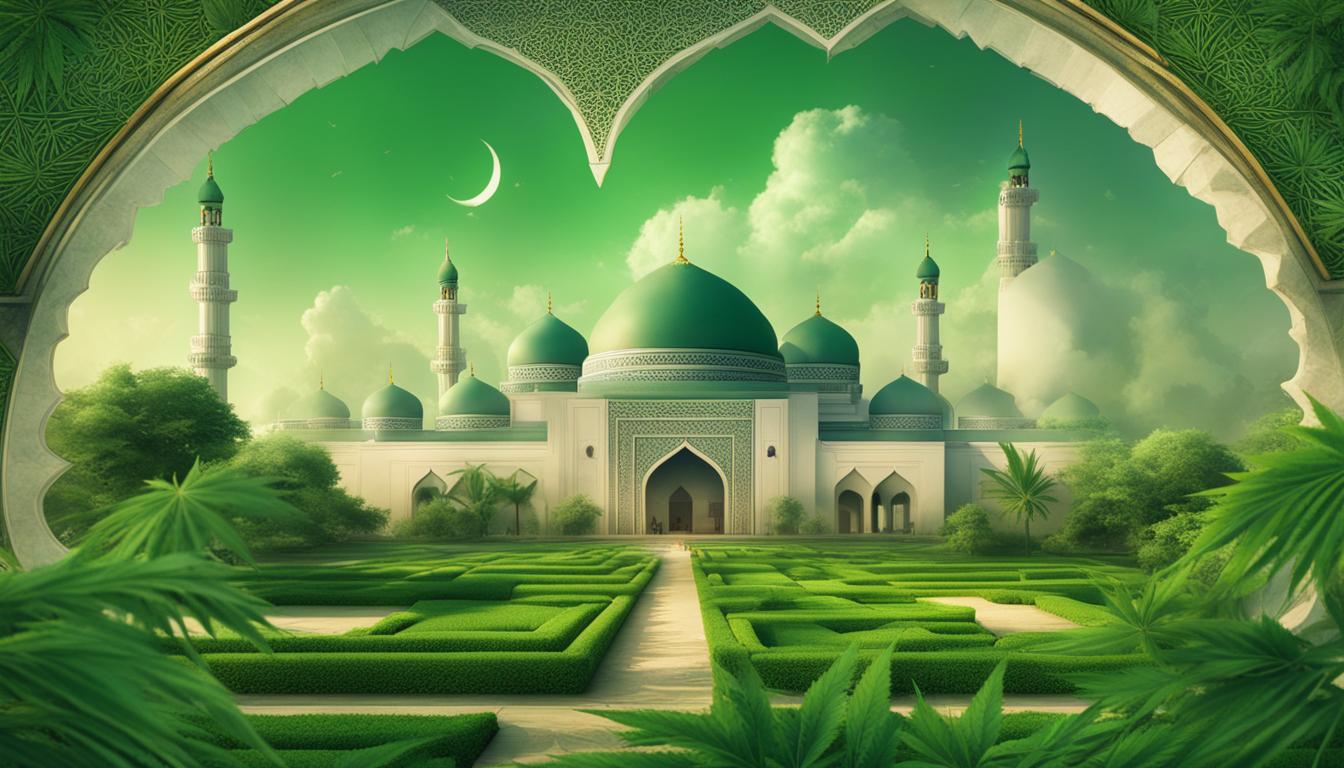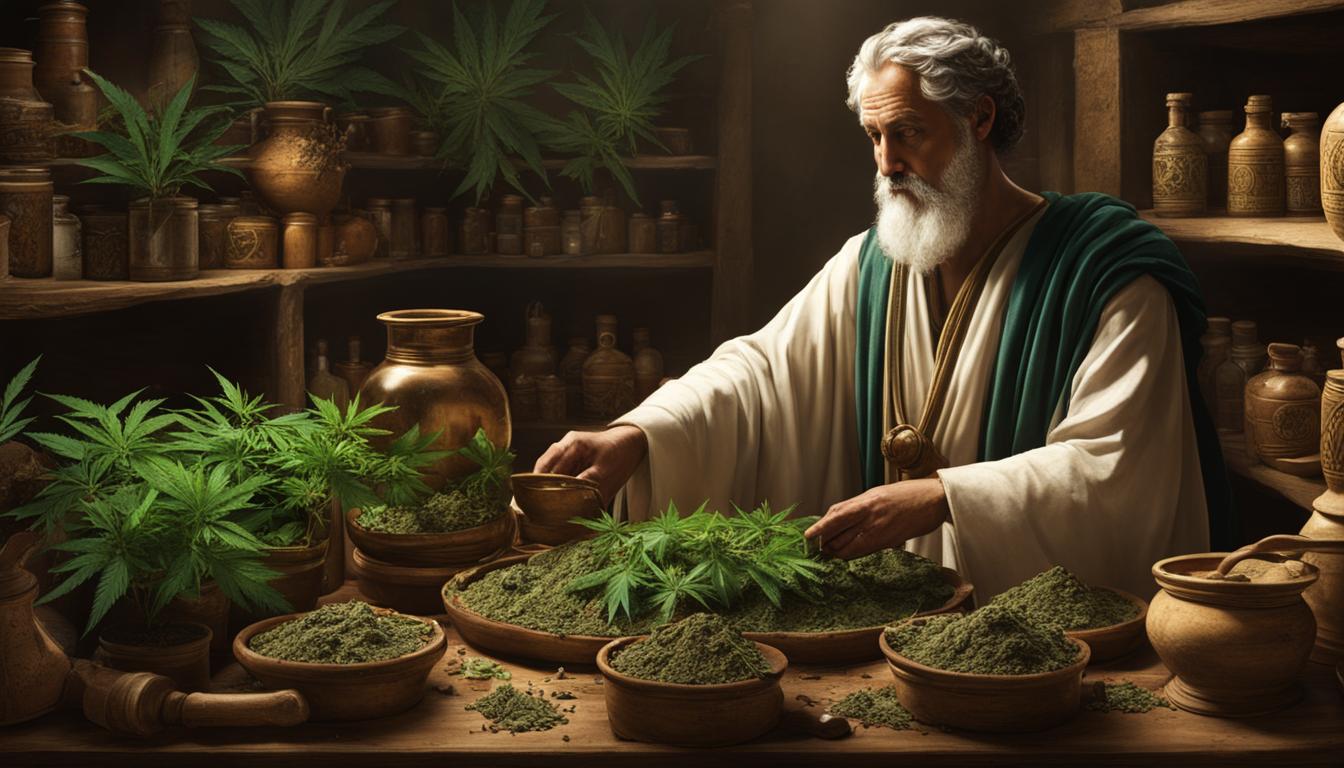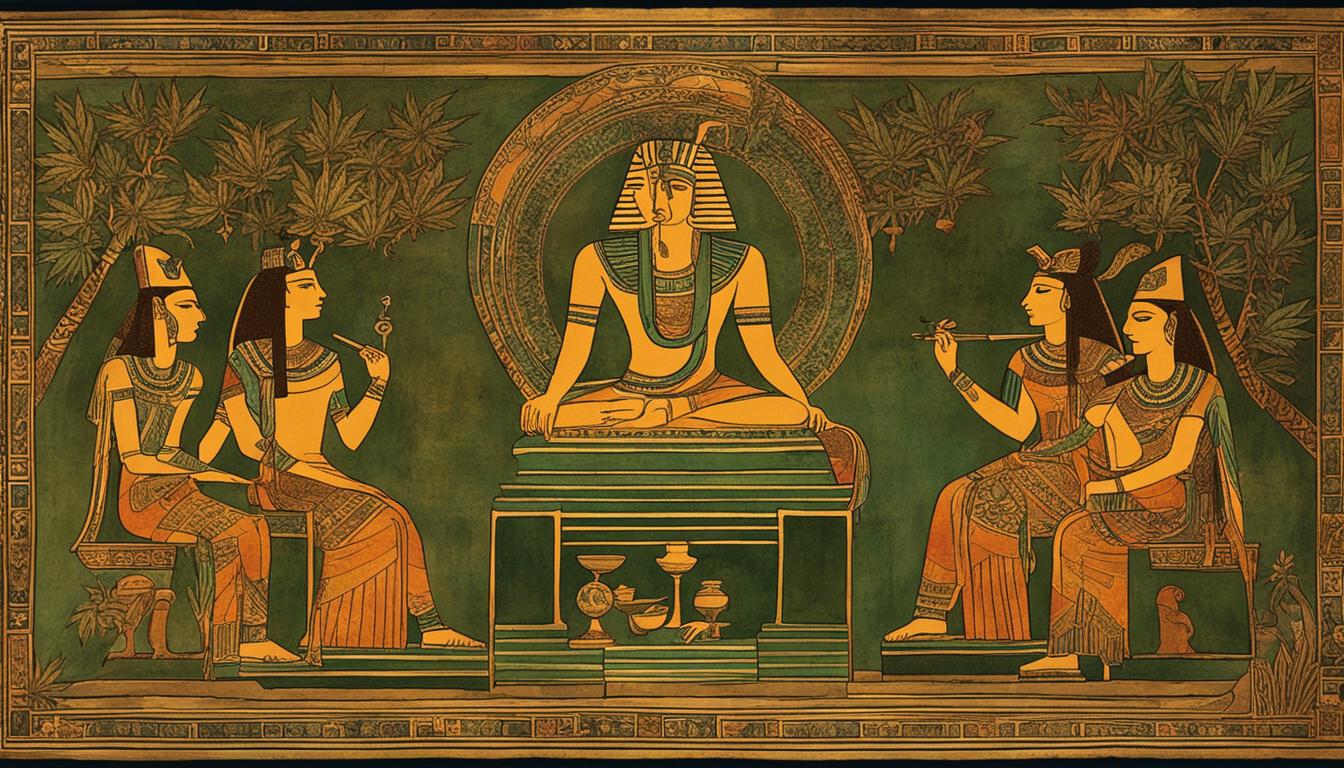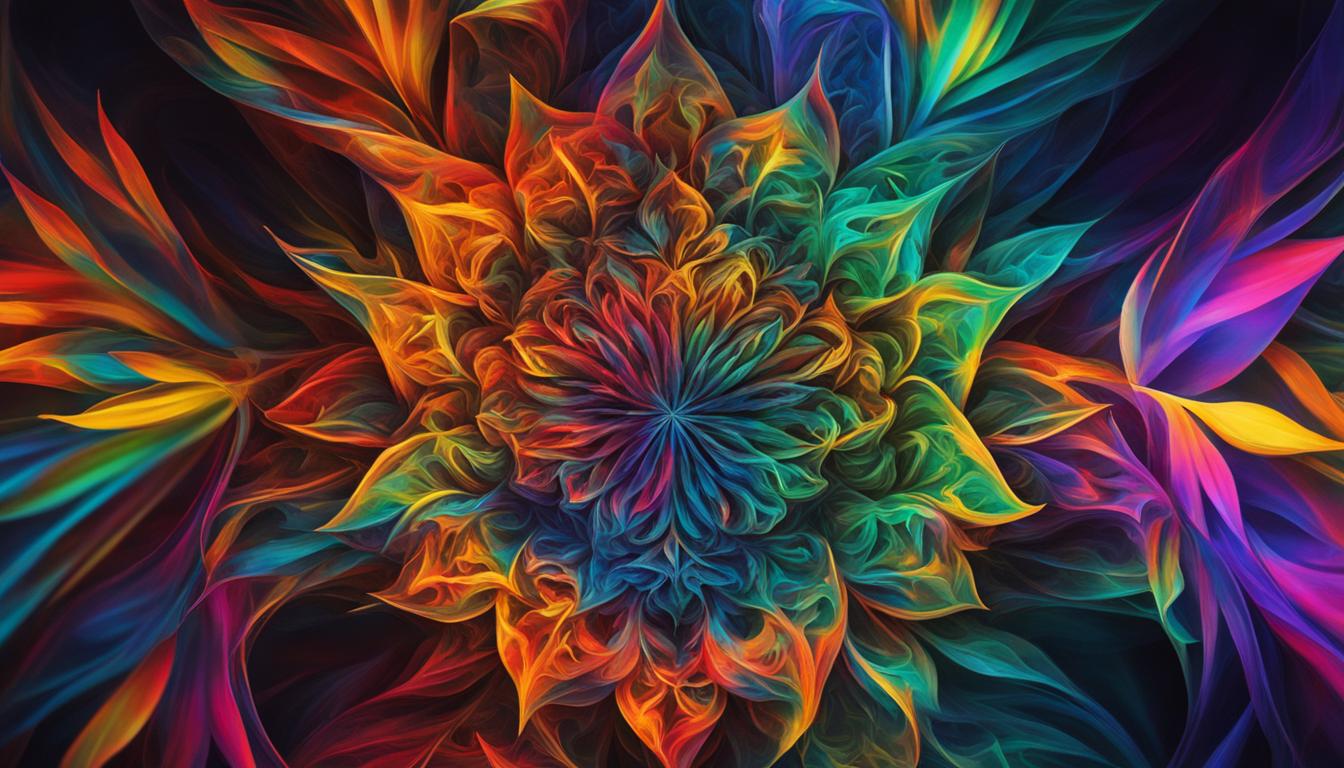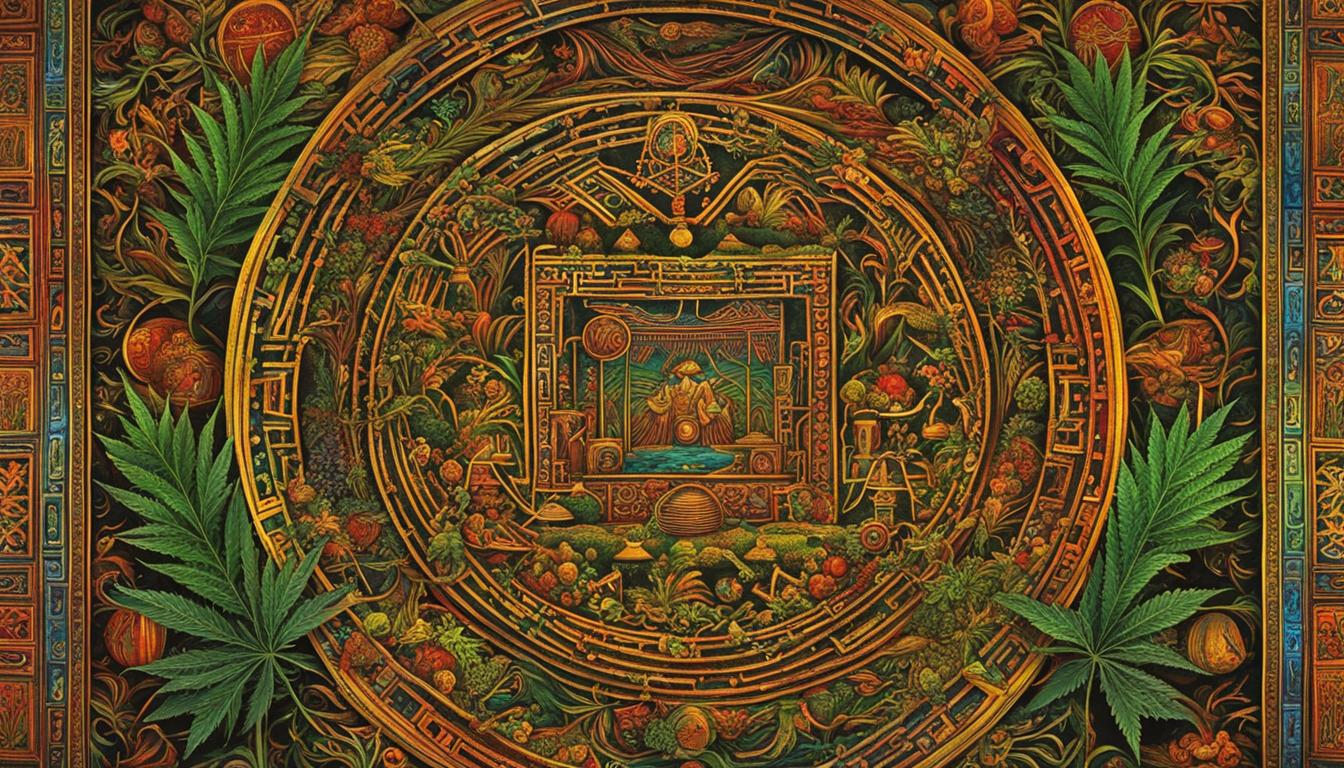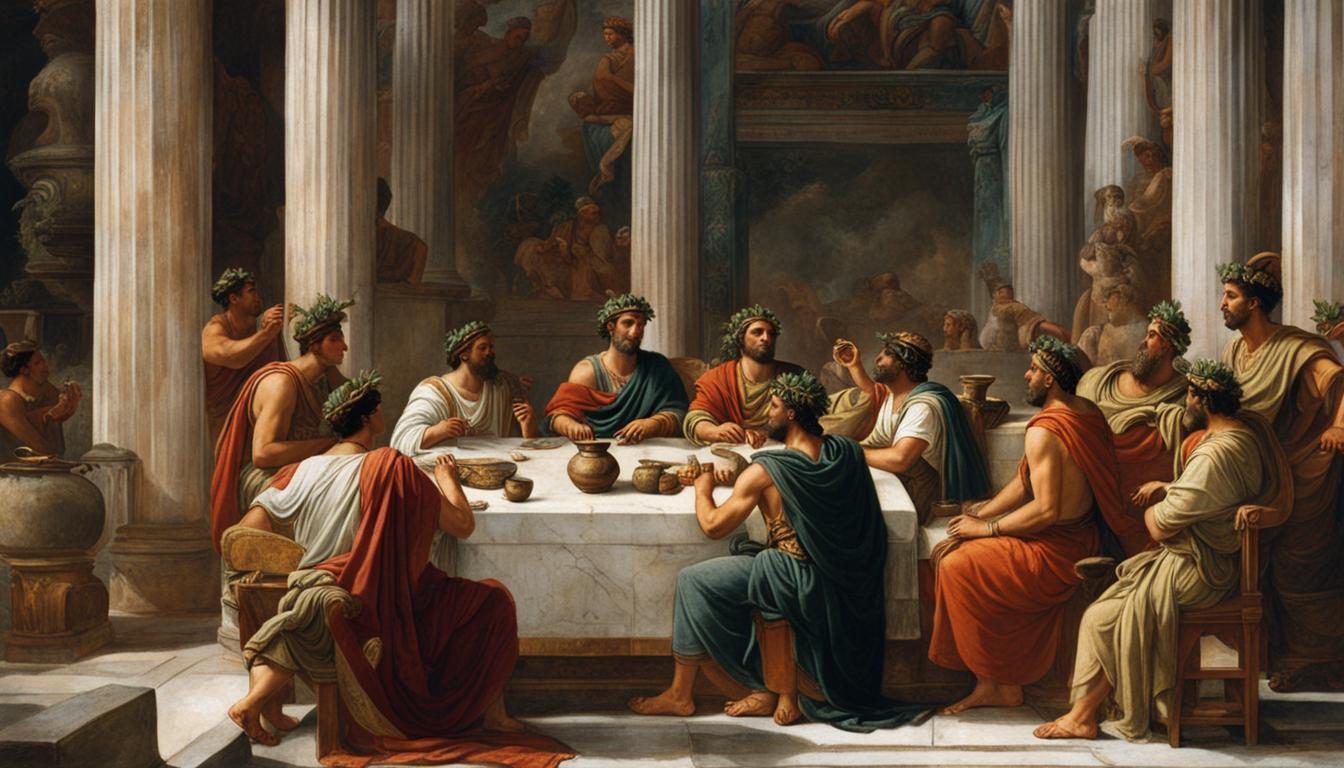What Are the Historical References to Cannabis in Islamic Texts?
Welcome to our insightful exploration of the historical references to cannabis in Islamic texts. In this article, we will delve into the intriguing relationship between Islam and cannabis, shedding light on its presence in Islamic history. While the Quran does not explicitly mention cannabis, its use and significance have been subjects of debate among religious scholars and within different Muslim religious schools of thought.
As we navigate through the rich tapestry of Islamic culture and tradition, we will uncover the historical context of cannabis in Islamic societies. From the ancient Assyrians and Egyptians to the translation of Greek texts by Arabic scholars, cannabis has played a role in various aspects of Islamic civilization. This exploration will provide valuable insights into the historical use of cannabis in the Middle East and its integration into religious practices.
In addition, we will delve into the fascinating topic of cannabis regulation in the Islamic Republic of Iran. As a unique blend of religious exegesis and political influence, Iran offers an intriguing case study for cannabis regulation. We will examine the interpretations of Iran’s leading Shia authorities on cannabis, including its legality, potential medical use, and social-religious implications.
Finally, we will explore cannabis as an entertaining substance in Islamic history, particularly during the 9th to 18th centuries. From literature to historical accounts, cannabis, known as hashish, has been associated with religious sects such as the Hashishiyans and the Sufis. We will uncover the cultural attitudes towards cannabis in the past and the debates that emerged among religious scholars.
Join us on this illuminating journey through Islamic history as we uncover the complex relationship between Islam and cannabis. Gain a deeper understanding of its historical references, cultural significance, and the evolving attitudes towards cannabis within the Islamic world.
Cannabis in Islamic Culture and Tradition
Despite the lack of explicit references in the Quran, cannabis has played a significant role in Islamic culture and tradition. Throughout history, Persian and Arab scholars, scientists, and historians have explored the place of cannabis in their respective societies.
For centuries, cannabis has been used for medicinal and recreational purposes, sparking debates about its merits and dangers. Islamic societies have witnessed discussions on the use of cannabis, with some supporting its use for medicinal purposes. The cultural and historical significance of cannabis in Islamic civilizations highlights its complex relationship with Islamic culture and tradition.
The exploration of cannabis in Islamic culture and tradition allows us to understand the diverse perspectives on the plant within Muslim societies. It also emphasizes the importance of historical context in shaping societal attitudes towards cannabis. While the Quran does not explicitly address cannabis, its cultural and historical use provides valuable insights into the multifaceted relationship between cannabis and Islamic societies.
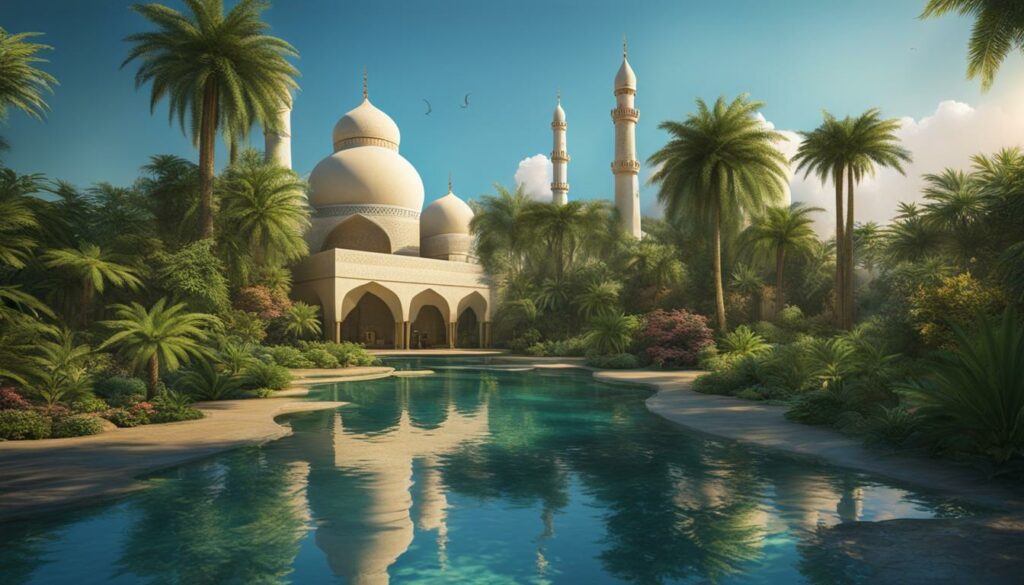
The Role of Cannabis in Islamic Civilizations
Islamic civilizations have a rich history of engaging with cannabis, both as a medicinal herb and a recreational substance. Ancient texts and historical records mention the use of cannabis for its medicinal properties, with references dating back to the Assyrians, Egyptians, and Hebrews in the Middle East.
Arabic scholars in the 9th century translated Greek texts that discussed the medicinal properties of cannabis, further contributing to its use within Islamic societies. Over time, cannabis gained popularity among religious and mystical groups, such as the Sufis, who incorporated it into their spiritual practices.
The historical use of cannabis in Islamic civilizations provides valuable insights into the diverse cultural and religious practices surrounding the plant. It showcases the dynamic nature of Islamic societies and the various ways in which cannabis has influenced their traditions.
| Key Points: | Islamic Culture and Tradition |
|---|---|
| Use of cannabis in Islamic societies | Medicinal and recreational purposes |
| Debates on cannabis | Merits and dangers |
| Support for cannabis use | For medicinal purposes |
| Importance of historical context | Shaping societal attitudes |
Cannabis Regulation in the Islamic Republic of Iran
Iran, as an Islamic Republic, has its own unique approach to drug regulation, including the use of cannabis. The country has a long history of drug use, and in recent years, it has been at the forefront of experimenting with drug policies and regulation, including discussions on the legalization and regulation of cannabis and opium. These discussions are influenced by various factors, including religious, cultural, and political considerations.
Religious authorities in Iran play a significant role in interpreting and shaping drug regulation policies. The interpretations of religious scholars regarding cannabis vary, with some supporting its medicinal use while others argue for its prohibition. These different perspectives are rooted in the interpretations of Islamic law and vary across different religious schools of thought.
Understanding the status of cannabis in contemporary Iran sheds light on the broader discussions about drug regulation in the Middle East. It provides insights into the complex interaction between religious teachings, cultural attitudes, and political considerations. By examining the legal interpretation of religious authorities and the ongoing debates surrounding cannabis, we can gain a deeper understanding of the complexities surrounding cannabis regulation in Iran and its implications for the wider region.
| Religious Scholar | Position on Cannabis |
|---|---|
| Ayatollah Khamenei | Opposes cannabis use for recreational purposes |
| Ayatollah Sistani | Supports limited medicinal use of cannabis |
| Ayatollah Makarem Shirazi | Advocates for strict prohibition of cannabis |
The Historical Use of Cannabis in Islamic Societies
Cannabis has a rich history in Islamic societies, spanning centuries and encompassing various purposes. Ancient texts and historical records provide evidence of the medicinal use of cannabis in the Islamic world. The Assyrians, Egyptians, and Hebrews were among the early adopters of cannabis in the Middle East, recognizing its therapeutic properties.
Arabic scholars in the 9th century further explored the medicinal benefits of cannabis by translating Greek texts. These translations shed light on the early understanding of cannabis in Islamic civilizations and its potential to alleviate physical ailments.
Over time, cannabis consumption became more prevalent, particularly among religious and mystical groups like the Sufis. These groups believed that cannabis could facilitate spiritual experiences and enhance their connection with the divine. The use of cannabis within these religious contexts highlights its cultural significance and the role it played in shaping Islamic traditions.
| Time Period | Significance of Cannabis |
|---|---|
| Assyrians, Egyptians, and Hebrews | Recognized medicinal properties of cannabis |
| 9th century | Arabic scholars translated Greek texts on cannabis’ medicinal benefits |
| Subsequent centuries | Cannabis associated with religious and mystical groups, such as the Sufis |
The historical use of cannabis in Islamic societies provides valuable insights into the role of this plant in ancient cultures and religious practices. It demonstrates how cannabis was regarded not only as a potential remedy for physical ailments but also as a tool for spiritual exploration and enlightenment.
References:
- “Islamic Culture and the Medical Arts” – The Metropolitan Museum of Art
- “Cannabis in the Medieval Islamic World” – ArabLit Quarterly
- “Cannabis and Sufism: Understanding the Ecstasy of Paradise” – United Academics
Cannabis as an Entertaining Substance in Islamic History
Cannabis has had a fascinating role as an entertaining substance in Islamic history, particularly between the 9th and 18th centuries. Its popularity as an intoxicant spread throughout Islamic society, leaving traces in literature and historical accounts. During this period, cannabis, known as hashish, became associated with various religious sects, including the Hashishiyans and the Sufis. While the Quran does not explicitly forbid its use, debates and discussions on the merits and dangers surrounding cannabis emerged among religious scholars.
The historical context of cannabis as an entertaining substance in Islamic history provides valuable insights into the cultural attitudes towards cannabis in the past. It highlights how different religious groups viewed its use, whether for recreational purposes or as a means to attain spiritual enlightenment. The association between cannabis and religious sects demonstrates the diverse interpretations and practices within Islamic societies.
Cannabis, or hashish, played a significant role in Islamic history, particularly among the Sufis. It was believed to facilitate mystical experiences and achieve states of heightened spirituality. However, its use also raised concerns among religious scholars, leading to debates about its legality and potential social consequences.
Understanding the historical significance of cannabis as an entertaining substance helps us appreciate the complexity of its role in Islamic societies. It sheds light on the dynamics between religion and recreational activities, provoking thoughtful analysis and fostering a deeper understanding of cultural attitudes towards cannabis.
| Islamic History and Cannabis | Key Points |
|---|---|
| 9th to 18th centuries | – Cannabis gained popularity as an intoxicant – Associated with religious sects such as the Hashishiyans and the Sufis – Debates among religious scholars on its use – Not explicitly forbidden in the Quran |
| Historical Significance | – Offers insights into cultural attitudes towards cannabis – Demonstrates diverse interpretations and practices within Islamic societies – Highlights the association between cannabis and religious sects |
The historical context of cannabis as an entertaining substance in Islamic history provides valuable insights into the cultural attitudes towards cannabis in the past.
Conclusion
The historical references to cannabis in Islamic texts reveal the intricate connection between cannabis and Islamic societies. Although not explicitly mentioned in the Quran, cannabis has played a significant role in Islamic culture and tradition. Over time, attitudes towards cannabis have evolved, leading to debates among religious scholars and varying interpretations within different Islamic schools of thought.
One country that has been at the forefront of cannabis regulation discussions in the Middle East is Iran. As an Islamic Republic, Iran has its own unique approach to drug regulation, including discussions on the legal status of cannabis. Understanding the perspectives of religious authorities in Iran regarding cannabis provides valuable insights into the broader discussions surrounding drug regulation in the region.
Historically, cannabis has been used in Islamic societies for medicinal, recreational, and even mystical purposes. Ancient texts and historical records attest to the use of cannabis in the Middle East, with Arabic scholars translating Greek texts that discussed its medicinal properties. Additionally, cannabis gained popularity as an entertaining substance during the 9th to 18th centuries, particularly among religious sects like the Hashishiyans and the Sufis.
While the Quran may not explicitly address cannabis, its historical presence in Islamic societies raises important questions about its cultural, social, and religious implications. Exploring the role of cannabis in the Islamic world sheds light on its rich history and the diverse perspectives within Islamic societies.
FAQ
Is cannabis mentioned in the Quran?
No, cannabis is not explicitly mentioned in the Quran, the holy text of Islam.
Has cannabis been used in Islamic societies?
Yes, cannabis has been used in Islamic societies for centuries for various purposes including medicinal and recreational use.
What is the historical significance of cannabis in Islamic civilizations?
Cannabis has played a role in Islamic culture and tradition, with references in ancient texts and historical records.
How is cannabis regulated in the Islamic Republic of Iran?
Iran has its own unique approach to drug regulation, including discussions on the regulation of cannabis and opium.
What is the historical context of cannabis in Islamic societies?
Cannabis has been used for medicinal and recreational purposes in Islamic societies throughout history.
Was cannabis used as an entertaining substance in Islamic history?
Yes, cannabis, known as hashish, was used as an intoxicant in Islamic history, particularly during the 9th to 18th centuries.

